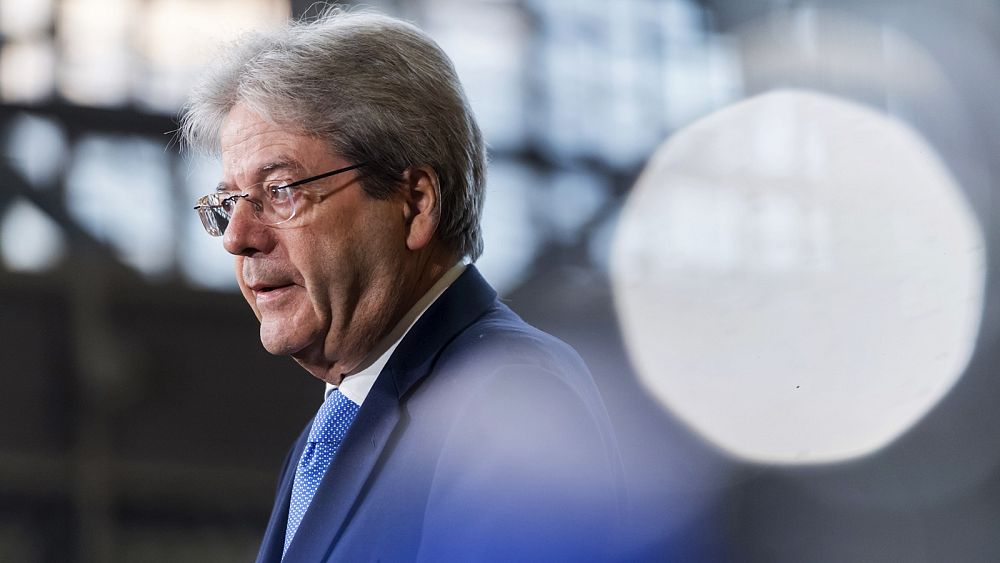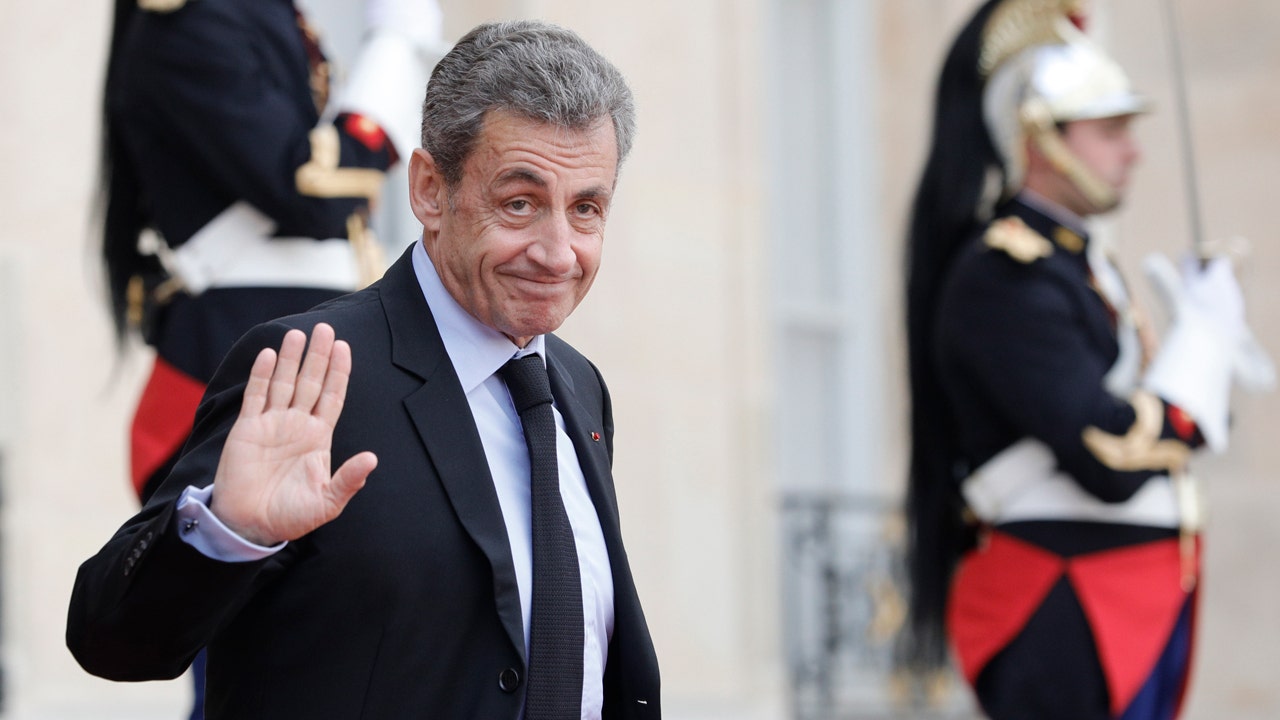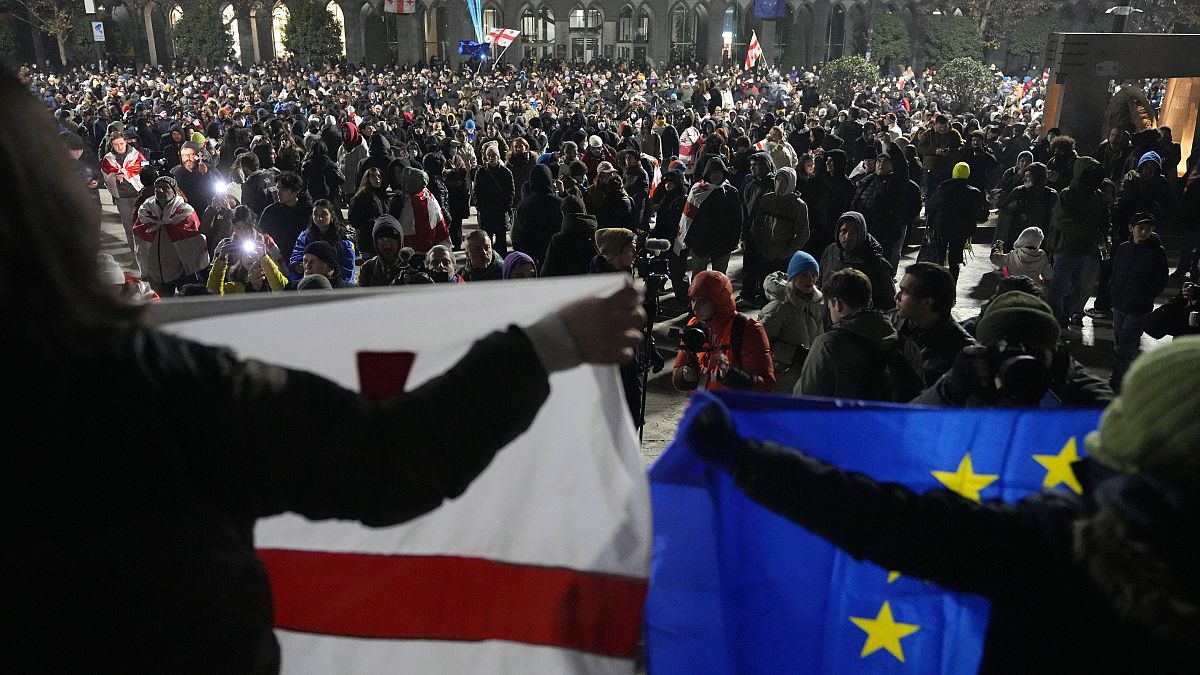World
EU fiscal rules couldn’t reduce debt in the last 25 years: Gentiloni

Paolo Gentiloni, the European Commissioner for the economy, offered on Friday a candid assessment of the European Union’s fiscal framework.
“Public debt increased in the last 25 years,” Gentiloni said on Friday morning as he defended the Commission’s proposal to make the union’s economic governance framework more flexible.
EU member states have to adhere to a set of rules, known as the Stability and Growth Pact (SGP) to keep a cap on their public deficit and government debt but which have been the object of intense scrutiny since their introduction in the late 1990s.
The limits were set at 3% for deficit-to-GDP and at 60% for debt-to-GDP.
The conversation gained further traction in the aftermath of the 2007-2008 financial meltdown and the subsequent European debt crisis, which saw several countries adopt punishing austerity measures that backfired and exacerbated the pain.
Now, following the back-to-back economic shocks unleashed by the COVID-19 pandemic, Russia’s invasion of Ukraine, soaring energy prices and record-breaking inflation, the debate is back on the top of the political agenda.
The European Commission put forward in April a legislative proposal to overhaul the fiscal rules and make them fit for purpose in the new economic landscape. The review keeps the 3% and 60% targets intact but allows member states wider space to design their own trajectories and sanitise their finances across a four-year period.
“Our goal is to make the framework simpler, more transparent and more effective, with greater national ownership and better enforcement, while allowing for reform and investment and reducing high public debt ratios in a realistic, gradual and sustainable manner,” Gentiloni said in remarks at the Salzburg Summit 2023.
“It didn’t happen in the last 25 years, so we’re starting from a situation where existing rules were very useful from several aspects – let’s think, for example, of the famous 3% threshold for deficit-to-GDP – but they were not able to reduce public debt.”
Gentiloni’s comments come days after Eurostat released new data that showed government debt across the EU standing at 83.7% of GDP in the first quarter of 2023, a slim decrease compared to the 83.8% recorded in the previous quarter.
A total of 12 countries remain above the 60% goal enshrined in the fiscal rules, with six of them – Greece, Italy, Portugal, Spain, France and Belgium – breaking the 100% barrier.
While debt levels have gone down in recent months, the economic challenges that lie in the EU’s path threaten to derail the trend.
A recent report by the European Commission estimated the bloc would need up to €745 billion in additional investments per year to fulfill the Green Deal and the digital transition. Although most of the money is expected to come from the private sector, public authorities will be asked to step in and act as the driving force.
In Gentiloni’s view, these exorbitant figures underline the need to modernise the fiscal framework and move away from the economic consensus that characterised the last decade. The ultimate goal, he said, must be achieving “inclusive and sustainable growth.”
But the Commission’s fresh push to reform the rules is far from a deal done.
Countries like Germany, Austria, the Netherlands, Denmark and Estonia have raised concerns about the proposed overhaul because they fear it might give governments excessive leeway to negotiate their national plans and therefore fail to produce a continued, tangible decline in debt levels.
Germany, in particular, has come forth with demands to introduce uniform safeguards to ensure indebted countries realise a minimum reduction every year. France, however, forcefully opposes this approach, arguing it will lead to economic hardship.
Gentiloni acknowledged on Friday the “different positions” around the table and conceded “our proposal can be improved.”
“I think we’re reasonably addressing this issue,” Gentiloni said.
“It is important not to lose the balance we manage to strike as a Commission and work together in the common interest to reach an argument on reform by the end of the year.”

World
The Year in Pictures 2024: Far From Ordinary

When shots were fired at a campaign rally for former President Donald J. Trump on a July evening in Butler, Pa., the veteran New York Times photographer Doug Mills was just a few feet from him. As the Secret Service rushed toward Mr. Trump, Mr. Mills’s heart pounded when he realized what was happening.
Then instinct took over. Mr. Mills kept taking pictures, at an extremely fast shutter speed of one eight-thousandth of a second, capturing an image that illustrates the magnitude of that moment: Mr. Trump, his face streaked with blood, his fist raised in defiance.
This year was made up of such extraordinary moments. And Times photographers captured them in extraordinary images. The Year in Pictures brings you the most powerful, evocative and history-making of those images — and allows you to see the biggest stories of 2024 through our photographers’ eyes.
The presidential campaign — full of twists and turns — provided some of our most memorable photos. Kenny Holston captured a shaky President Biden struggling to find his footing in what turned out to be his only debate of the 2024 election. Erin Schaff conveyed the exhilaration surrounding Vice President Kamala Harris in the short sprint of her campaign. And Todd Heisler brought home the excitement of an 8-year-old girl in pigtails, Ms. Harris’s great-niece, who watched with pride as Ms. Harris accepted her party’s nomination for president.
Yet even as the American political campaign intensified, wars ground on overseas, creating new dangers and obstacles for our photojournalists determined to document the fighting. The war between Hamas and Israel escalated into a regional conflict, and our photographers depicted the Israeli airstrikes on Lebanon, the families forced to flee their homes and the neighborhoods reduced to rubble.
When Israeli forces recovered the bodies of six hostages in Gaza, our photographers revealed the pain of the captives’ families as they cried out at their loved ones’ funerals after 11 months of anguished waiting. And last month, Samar Abu Elouf, a Palestinian photographer for The Times, delivered some of the most indelible images of the year: a series of portraits of Gazans horribly injured in the war, including children who had lost arms, legs or eyes.
Children were also central to the work of Lynsey Addario, a veteran photographer who has been chronicling the war in Ukraine since Russia first invaded in 2022. Ms. Addario’s images tell the stories of young Ukrainians with cancer whose treatment was disrupted by the war, often with devastating results. One, a 5-year-old girl whose chemotherapy was upended by the Russian invasion, ultimately lost her life.
Our photographers embrace their calling of bearing witness to history, showing readers the atrocities and the suffering that might otherwise be overlooked. But they also see their mission more broadly, and aim to depict the richness and color of life by regularly bringing us pictures that delight and surprise.
Take the photo by Hiroko Masuike from the ticker-tape parade in October for the New York Liberty women’s basketball team. The young fans pictured radiate a kind of awe-struck joy, screaming to the players by name. Or the photographs that show the sense of wonder on the faces of people at Niagara Falls as they bask in the magic of a solar eclipse in April.
We hope you can spend some time with these pictures, and take in our photographers’ reflections on them. This collection of images is a way to remember the year, but it is also, we hope, an opportunity to better understand their craft and their devotion to producing the world’s best photojournalism.
Curation
Tanner Curtis, Jeffrey Henson Scales
Interviews
Dionne Searcey
Editing
Natasha King
Digital Design
Matt Ruby
Print Design
Mary Jane Callister, Felicia Vasquez
Production
Peter Blair, Eric Dyer, Wendy Lu, Nancy Ramsey, Jessica Schnall, Hannah Wulkan
Additional Production
Anna Diamond
New York Times Director of Photography
Meaghan Looram
World
French high court upholds ex-president's corruption conviction

France’s highest court has upheld an appeal court decision which had found former President Nicolas Sarkozy guilty of corruption and influence peddling while he was the country’s head of state.
Sarkozy, 69, faces a year in prison, but is expected to ask to be detained at home with an electronic bracelet — as is the case for any sentence of two years or less.
He was found guilty of corruption and influence peddling by both a Paris court in 2021 and an appeals court in 2023 for trying to bribe a magistrate in exchange for information about a legal case in which he was implicated.
“The convictions and sentences are therefore final,” a Court of Cassation statement on Wednesday said.
FRANCE’S MACRON NAMES CENTRIST ALLY BAYROU AS NEXT PRIME MINISTER
Sarkozy, who was France’s president from 2007 to 2012, retired from public life in 2017 though still plays an influential role in French conservative politics. He was among the guests who attended the reopening of Notre Dame Cathedral earlier this month.
Sarkozy, in a statement posted on X, said “I will assume my responsibilities and face all the consequences.”
He added: “I have no intention of complaining. But I am not prepared to accept the profound injustice done to me.”
Sarkozy said he will seek to bring the case to the European Court of Human Rights, and hopes those proceedings will result in “France being condemned.”
He reiterated his “full innocence.”
“My determination is total in this case as in all others,” he concluded.
FILE – Former French President Nicolas Sarkozy leaves the Elysee Palace after a lunch with heads of states and officials, Monday, Sept. 30, 2019 in Paris. (AP Photo/Kamil Zihnioglu, File)
Sarkozy’s lawyer, Patrice Spinosi, said his client “will comply” with the ruling. This means the former president will have to wear an electronic bracelet, Spinosi said.
It is the first time in France’s modern history that a former president has been convicted and sentenced to a prison term for actions during his term.
Sarkozy’s predecessor, Jacques Chirac, was found guilty in 2011 of misuse of public money during his time as Paris mayor and was given a two-year suspended prison sentence.
Sarkozy has been involved in several other legal cases. He has denied any wrongdoing.
He faces another trial next month in Paris over accusations he took millions of dollars from then-Libyan dictator Moammar Gadhafi to illegally finance his successful 2007 campaign.
The corruption case that led to Wednesday’s ruling focused on phone conversations that took place in February 2014.
At the time, investigative judges had launched an inquiry into the financing of Sarkozy’s 2007 presidential campaign. During the inquiry, they discovered that Sarkozy and his lawyer, Thierry Herzog, were communicating via secret mobile phones registered to the alias “Paul Bismuth.”
Wiretapped conversations on those phones led prosecutors to suspect Sarkozy and Herzog of promising magistrate Gilbert Azibert a job in Monaco in exchange for leaking information about another legal case involving Sarkozy. Azibert never got the post and legal proceedings against Sarkozy have been dropped in the case he was seeking information about.
Prosecutors had concluded, however, that the proposal still constitutes corruption under French law, even if the promise wasn’t fulfilled. Sarkozy vigorously denied any malicious intention in his offer to help Azibert.
Azibert and Herzog have also been found guilty in the case.
World
EU ministers water down proposal on child sexual abuse

A proposal on combatting child sexual abuse has been watered down by some EU justice ministers, with others expressing their regret at certain elements of the proposal being removed entirely.
With the development of new technologies, sexual abuse of children has seen a rise in Europe.
The EU is therefore looking to update its directive on combatting the sexual abuse and sexual exploitation of children, which dates back to 2011.
However, the EU Commission’s initial proposal has been watered down by the justice ministers of several EU countries. Seven Member States, which include Belgium, Finland and Ireland, expressed their regret at the removal of certain parts of the proposal.
“We deeply regret that the majority of Member States were unable to support a more ambitious approach aimed at ensuring that children who have reached the age of sexual consent receive the strongest and most comprehensive legal protection possible against unwanted sexual acts,” they wrote in a press release.
Key issues remained unaddressed
Isaline Wittorski, EU regional coordinator at child rights organisation ECPAT International, is particularly concerned regarding Member States’ opposition to the extension of the limitation period for pursuing child sexual abuse cases.
She also regrets that “grooming” – the process by which an adult intentionally approaches minors and manipulates them for sexual purposes – for children who have reached the age of sexual consent was not addressed by the Council.
“The Member States expressly refused to recognise in the text that a child in a state of shock or intoxication cannot be considered to have consented to sexual abuse”, she adds.
Harmonisation of penalties
The Commission’s proposal aims to harmonise the definition of sexual violence against minors and penalties within the EU.
It will also update criminal law in order to criminalise the rape of children broadcast live on the internet, as well as the possession and exchange of paedophile manuals and child abuse deepfakes.
MEPs, for their part, should support a more ambitious directive. Birgit Sippel, a German MEP (S&D), is calling for longer limitation periods.
“Many children who have been abused take years or even decades before they dare to go to court or to a police station. So this is a very important step that is missing from the current directive,” the MEP told Euronews.
“Unfortunately, what I see is that the Council is watering down almost everything that could improve the current directive. It will therefore be very important for the EU Parliament to maintain a very strong position and force the Council to go further and not limit itself to the current directive,” she added.
The proposal’s text can still be amended. After a vote by MEPs, negotiations will take place between the EU Commission, the European Council and the European Parliament.
It is estimated that one in five children in Europe is a victim of some form of sexual violence.
In 2022 alone, there were 1.5 million reports of child sexual abuse in the EU.
Ministers also failed to reach agreement on another regulatory text aimed at combatting the sexual abuse of children online, which aims to force platforms to detect and remove content depicting sexual violence against minors. This proposal caused a clash between children’s rights defenders and privacy protection lobbies.
-

 Business1 week ago
Business1 week agoOpenAI's controversial Sora is finally launching today. Will it truly disrupt Hollywood?
-

 Politics5 days ago
Politics5 days agoCanadian premier threatens to cut off energy imports to US if Trump imposes tariff on country
-
/cdn.vox-cdn.com/uploads/chorus_asset/file/25782636/247422_ChatGPT_anniversary_CVirginia.jpg)
/cdn.vox-cdn.com/uploads/chorus_asset/file/25782636/247422_ChatGPT_anniversary_CVirginia.jpg) Technology6 days ago
Technology6 days agoInside the launch — and future — of ChatGPT
-
/cdn.vox-cdn.com/uploads/chorus_asset/file/25789444/1258459915.jpg)
/cdn.vox-cdn.com/uploads/chorus_asset/file/25789444/1258459915.jpg) Technology5 days ago
Technology5 days agoOpenAI cofounder Ilya Sutskever says the way AI is built is about to change
-

 Politics5 days ago
Politics5 days agoU.S. Supreme Court will decide if oil industry may sue to block California's zero-emissions goal
-
/cdn.vox-cdn.com/uploads/chorus_asset/file/25546252/STK169_Mark_Zuckerburg_CVIRGINIA_D.jpg)
/cdn.vox-cdn.com/uploads/chorus_asset/file/25546252/STK169_Mark_Zuckerburg_CVIRGINIA_D.jpg) Technology5 days ago
Technology5 days agoMeta asks the US government to block OpenAI’s switch to a for-profit
-

 Politics6 days ago
Politics6 days agoConservative group debuts major ad buy in key senators' states as 'soft appeal' for Hegseth, Gabbard, Patel
-

 Business3 days ago
Business3 days agoFreddie Freeman's World Series walk-off grand slam baseball sells at auction for $1.56 million














































































































